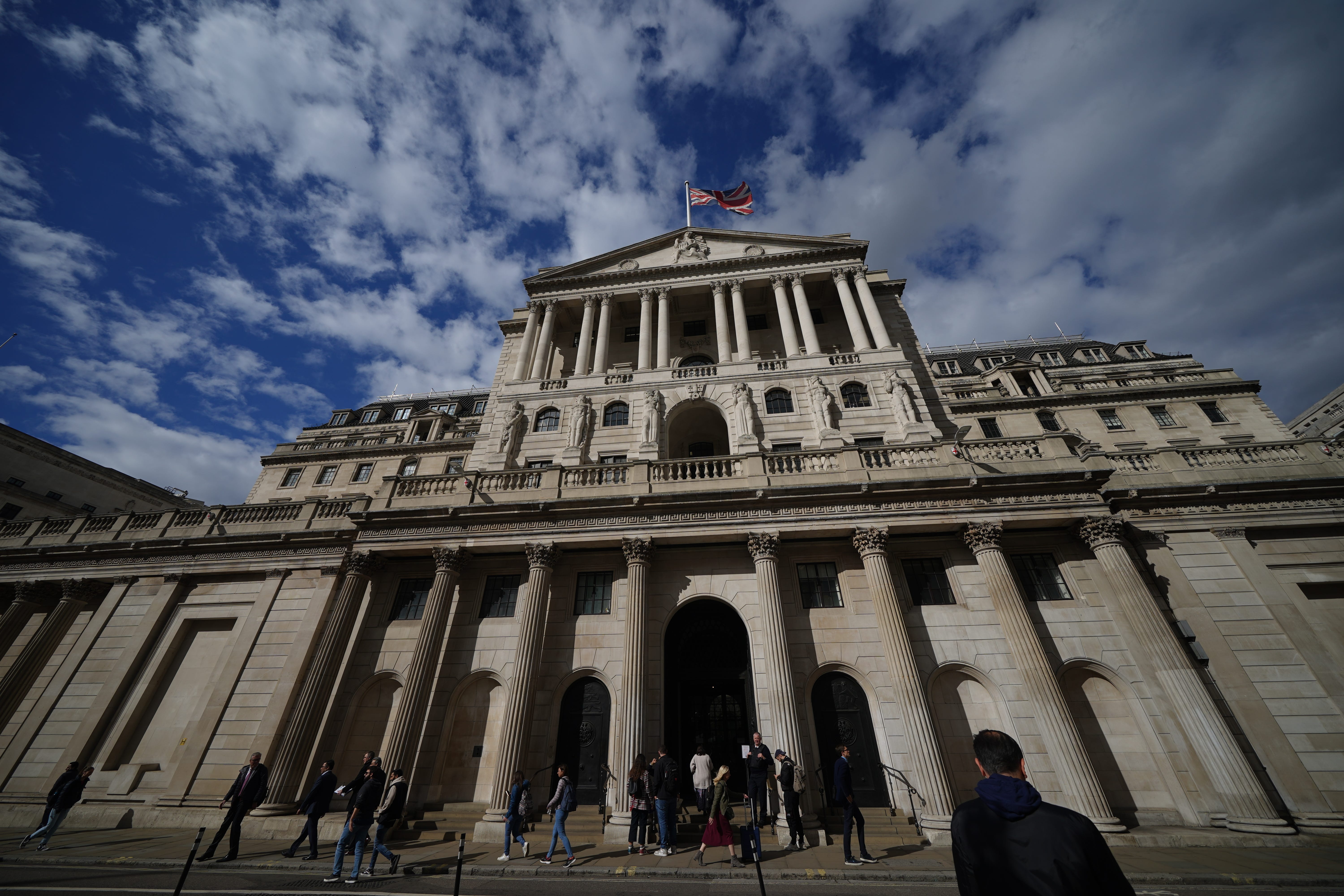Rishi Sunak will be looking at the latest warnings from the Bank of England and wincing
It may not be obvious to the voters enduring financial hardships that the government has the right policies to restore the living standards they have come to expect, writes Sean O’Grady


Central bankers tend to speak in a language all of their own, part jargon, part euphemism, and, even in times of crisis, a certain calming understatement.
The Bank of England, founded in 1694, has long experience in the field, and its latest financial stability report should be interpreted accordingly. So it really is bad news when the Bank warns that “falling real incomes, increases in mortgage costs and higher unemployment will place significant pressure on household finances” in 2023. In translation, it means trouble in the housing market, with falling prices and a draining of the confidence that it always needs to maintain momentum.
When the mood is gloomy and uncertain, and the next movement in prices is expected to be downwards, buyers may well postpone their purchases, creating something of a downward spiral. Even first-time buyers, who ought to be able to take advantage of newly (slightly) more affordable real estate may be put off by the general economic pessimism and the trend to higher interest rates.
The mood will indeed be gloomy in 2023 and 2024. The Bank has already signalled that Britain is entering a lengthy recession, confirmed by the latest growth numbers. Inflation is at a 41-year high and the Office for Budget Responsibility forecasting a record squeeze on living standards. The rise in private sector wages of almost 7 per cent suggests that inflation may become a little embedded in the system, given the tight labour market – which will push interest rates higher faster than they would be otherwise.
The Bank says about one in 40 households will be hit so badly that they will find themselves faced with mortgage payments that they would find hard to afford. However, a much larger number will be hit by gradually rising borrowing costs, with 4 million households – around half of owner-occupier mortgages – exposed to rate rises over the next year. Those coming off historically low fixed-rate deals will experience a particular jolt. As always, much depends on whether the breadwinner can hang onto their job.
This is a smaller proportion of households when compared with during the 2008 global financial crisis and the recession in the early 1990s, but still significant. Politically, it does make life more difficult for the government, because the housing recession looks likely to last towards the end of this parliament and towards the next election.
More to the point, it may not be obvious to the voters enduring such hardships (and for many, the shrinking value of their main asset) that the government has the right policies to restore the living standards they have come to expect. As much in despair as anything, some of the Conservative voters of 2019 will decide to let Labour have a turn, or stay at home in sullen disillusion. It would not take that many to deprive Rishi Sunak's government of its overall majority. Brexit, levelling up and “build back better” will demonstrably not have lived up to the promises Boris Johnson made around them three years ago.
However, as in the early 1980s and early 1990s, recession, signs of recovery – “green shoots” – can alter the atmosphere surprisingly quickly, especially if there are lingering doubts about the competency of the opposition parties. If inflation and interest rates are coming down and house prices start to rise again, some modest optimism might work wonders for the government’s ratings, and its prospects at the next election.
Memories of the traumas of Brexit and Covid-19, the energy shock and the cost of living crisis won’t be wiped away by a 1 per cent rise in house prices in 2024, say; but general elections are generally forward-looking affairs, about the direction of travel, if any, displayed by an administration. Sunak and his colleagues aren’t well-placed to overcome their reputation for division and incompetence, but they could craft a narrative about hard times being rewarded by future prosperity.
Indeed, that’s their only option. But things will certainly get worse before they get better – and it wouldn’t take much for things to get very much worse during the next 12 to 18 months.



Join our commenting forum
Join thought-provoking conversations, follow other Independent readers and see their replies
Comments